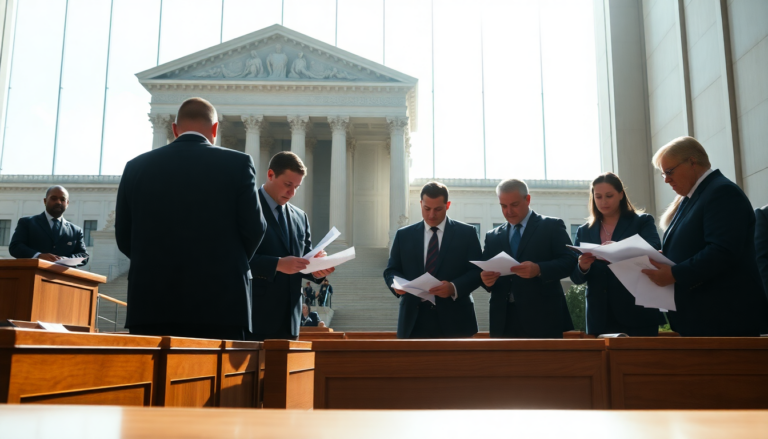Argomenti trattati
The background of the case
On January 6, 2021, a significant political rally led to an unprecedented attack on the U.S. Capitol, a day that left its mark in history. Among those who attended the “Stop the Steal” rally were four Seattle police officers, who now find themselves in a legal battle to shield their identities from public scrutiny. These officers, both current and former members of the Seattle Police Department, are appealing to the U.S. Supreme Court in a bid to prevent their names from being included in public records related to the investigation of that day’s events. Their concerns stem from the potential backlash they could face from the community, as well as the implications for their professional lives.
Initial legal challenges
The officers initially took action by suing the city of Seattle, requesting that any investigative records connected to January 6 be released with their names redacted. However, the Washington Supreme Court ruled against their claims earlier this year, unanimously stating that the officers did not demonstrate how disclosing their names would infringe upon their right to privacy. This ruling underscored the complexities surrounding public service and personal political beliefs, raising questions about the balance between transparency and individual rights.
The petition’s implications
In their petition to the Supreme Court, the officers, referred to by pseudonyms John Does 1, 2, 4, and 5, argue that their off-duty political activities should not lead to vilification or professional repercussions. They assert that attending the rally was a protected expression under the First Amendment, and they deny any wrongdoing or illegal conduct during the event. Moreover, they emphasize that their involvement should not carry the risk of public condemnation, especially when their actions did not breach police department policies.
The investigation’s findings
Following the rally, Seattle’s Office of Police Accountability conducted an investigation into the officers’ conduct, which ultimately cleared them of any unlawful or unprofessional behavior during the event. Interestingly, while two other officers who attended the rally were fired for trespassing near the Capitol, the investigation concluded that four officers, including the petitioners, had not violated departmental policies. This distinction highlights the varying degrees of accountability and the complexities within the police department’s internal processes.
Political beliefs and professional duties
The officers’ concerns extend beyond their personal reputations. They highlight the chilling effect that could arise when government employees are compelled to disclose their political beliefs or affiliations, particularly under the threat of disciplinary action. Their argument emphasizes the potential for such requirements to create an environment where public servants may feel pressured to conform to specific political narratives, ultimately undermining the essence of public service.
The role of public records
This case also raises pertinent questions about the role of public records in maintaining transparency and accountability within law enforcement agencies. The balance between the public’s right to access information and the individual’s right to privacy is a delicate one. As public records requests are a crucial tool for civic engagement and oversight, the outcome of this legal battle could set a significant precedent regarding how such requests are handled in the future.
Next steps in the legal process
The officers’ legal team is currently navigating the complexities of their appeal, which includes addressing challenges posed by respondents such as the Seattle Police Department and individuals like Sam Sueoka, who filed public records requests during his time as a law student. As the case unfolds, it will be essential to monitor how the legal system interprets the intersection of personal freedom, professional conduct, and public accountability.

